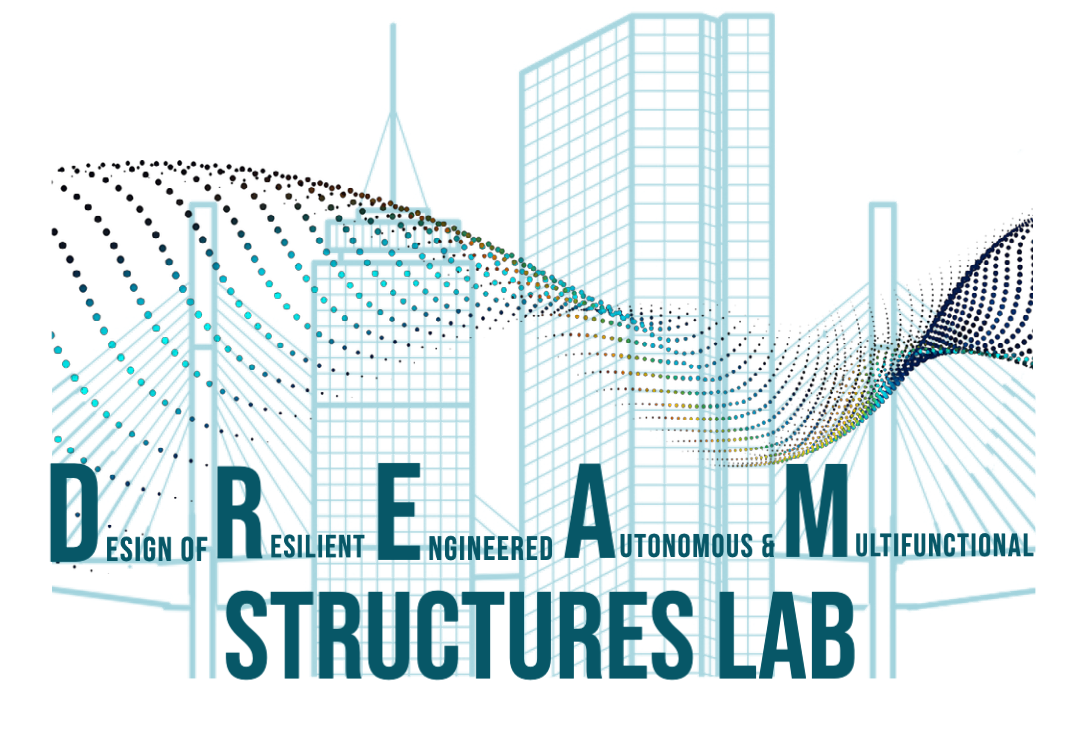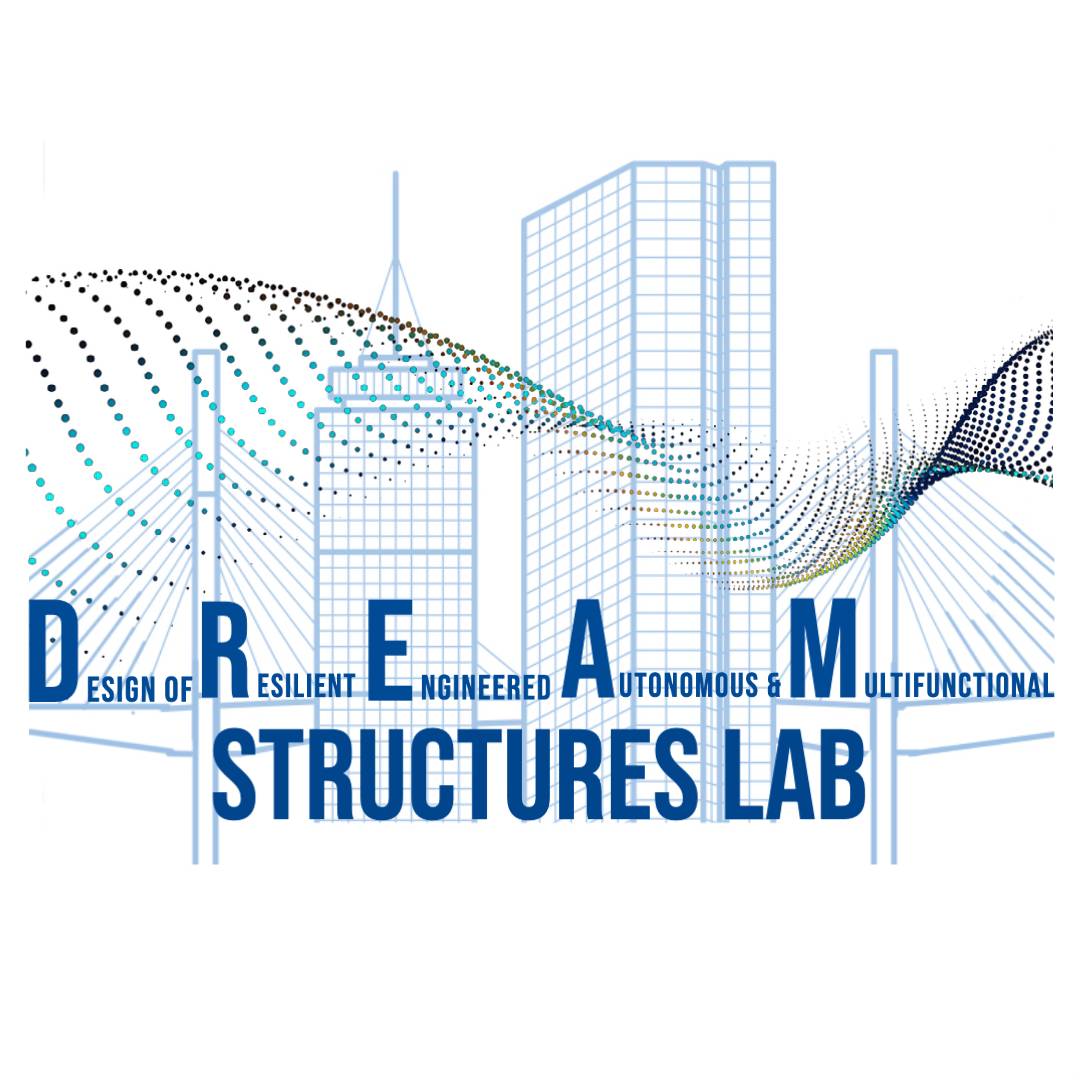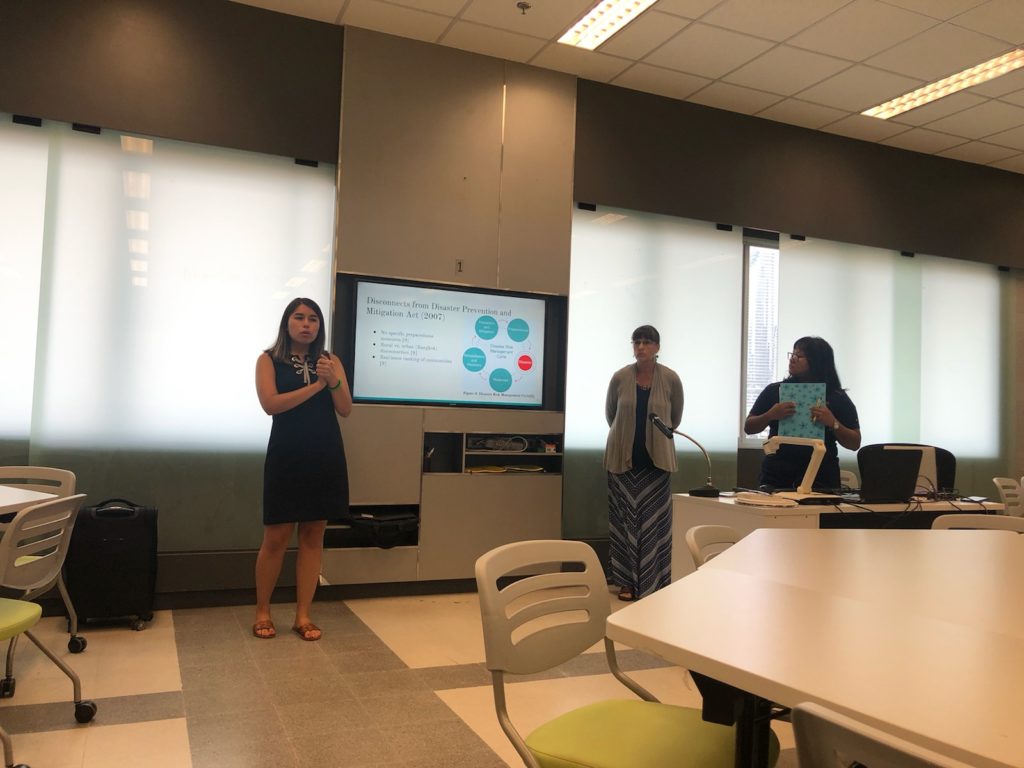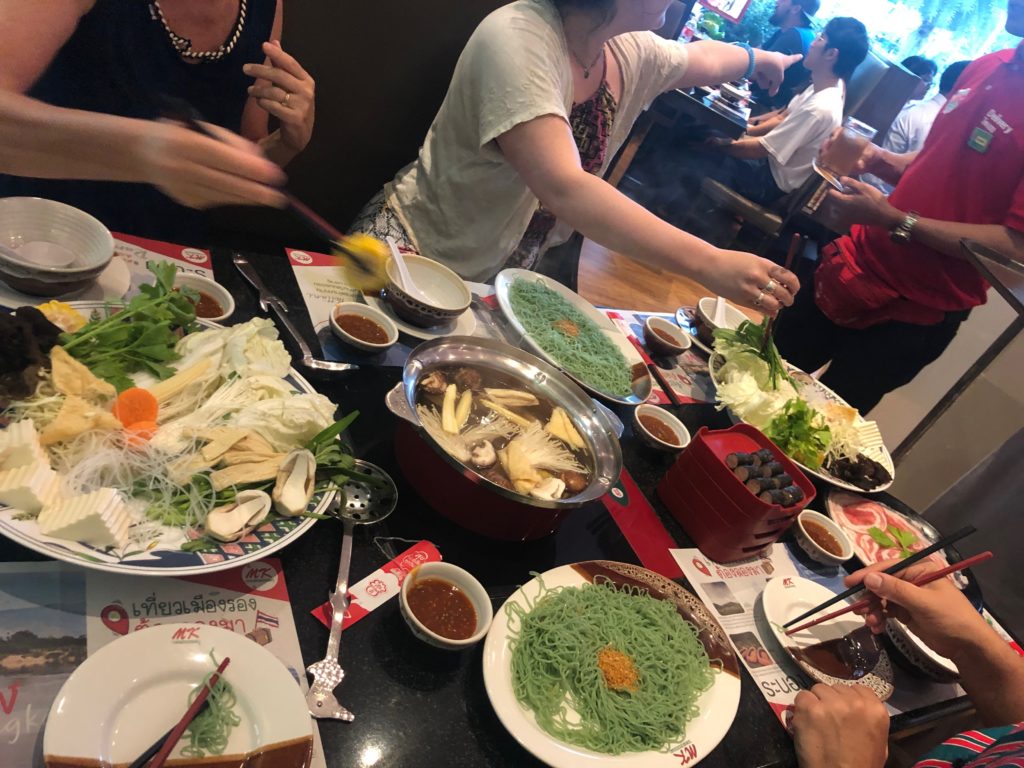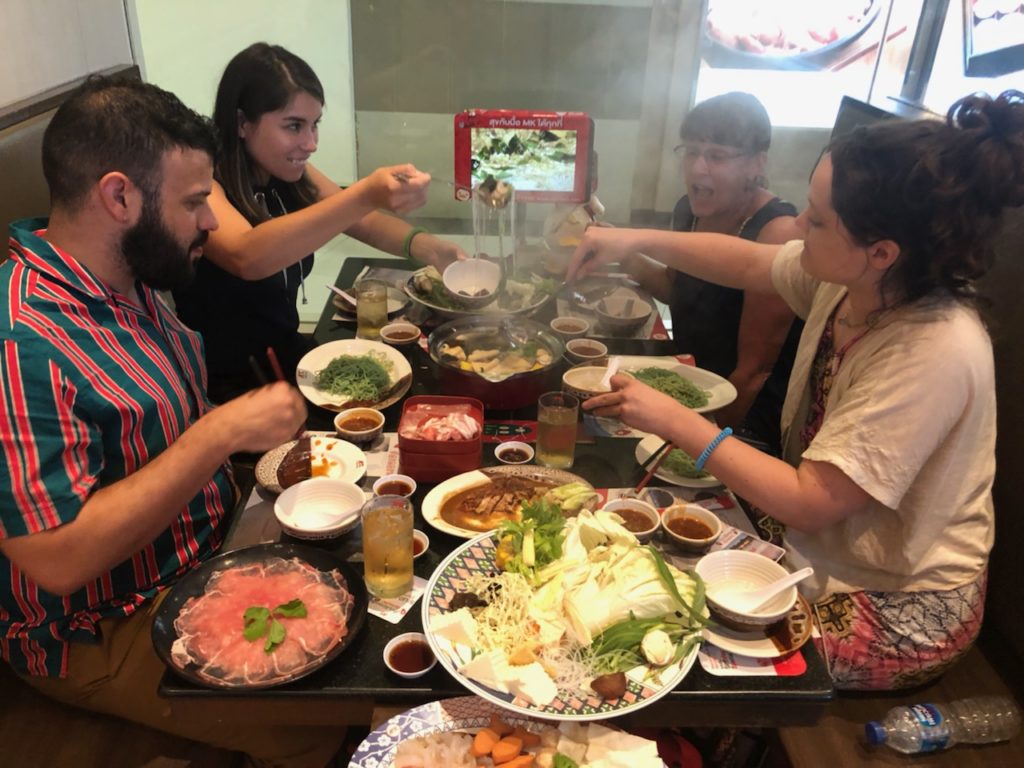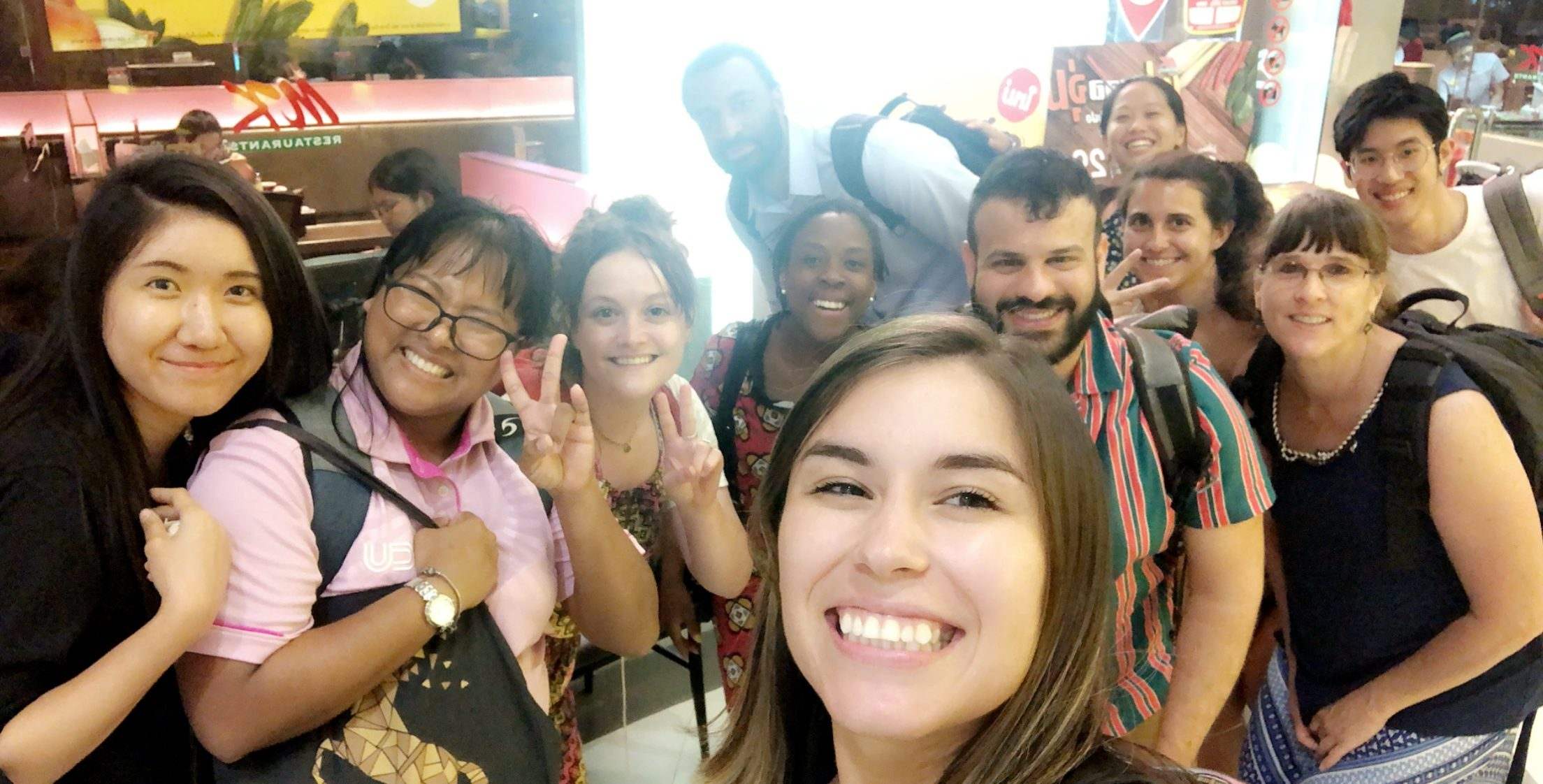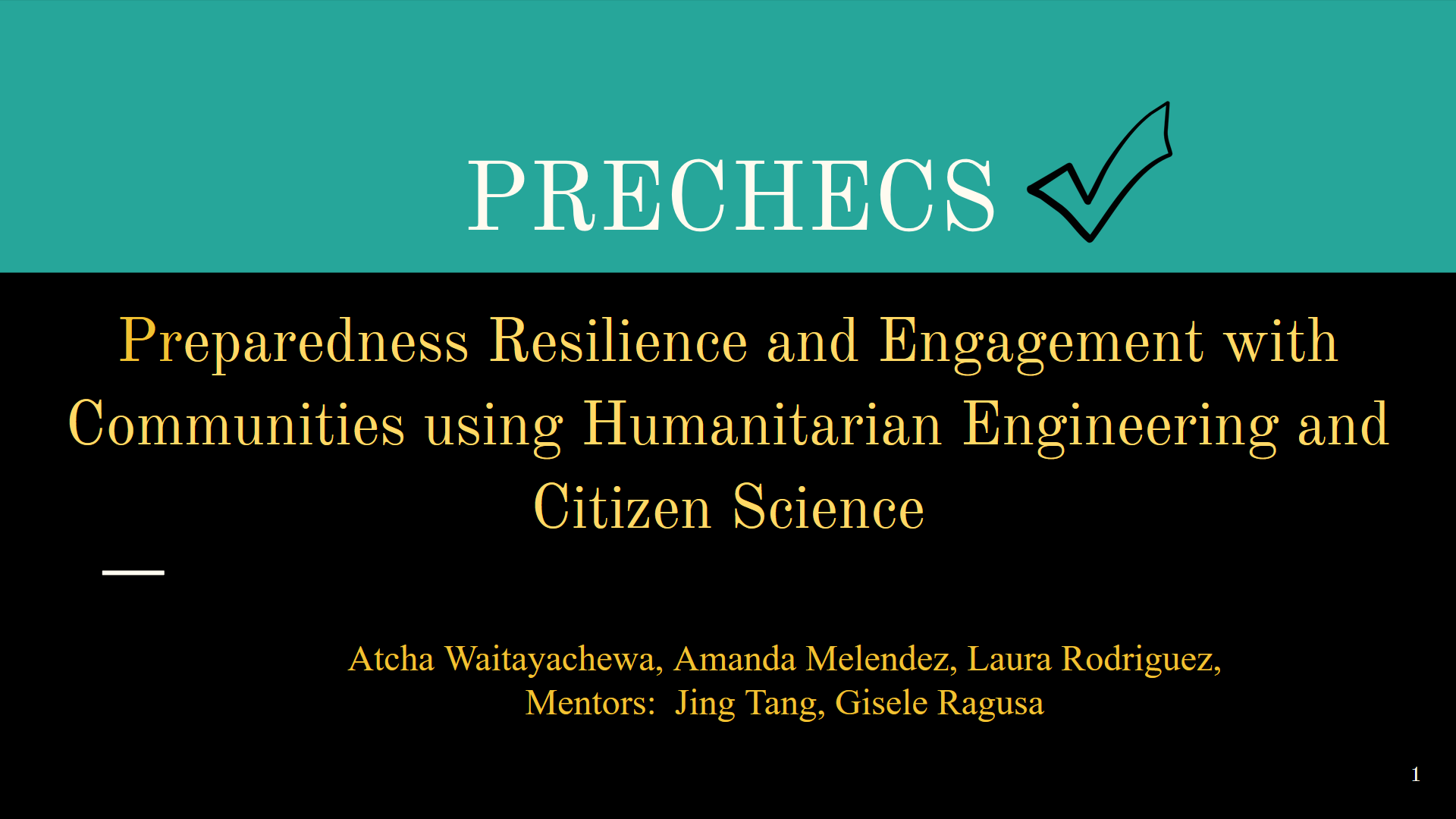
Hello my wonderful readers!
Today is my last day in Thailand. It is also proposal time.
My group went second to present. The other presentations were great.
So what is this PRECHECS framework we are proposing to be NSF funded?
Keeping potentially impacted communities actively engaged in maintaining sufficient levels of preparedness over the long term when the destructive events have unpredictable time intervals between occurrences is a major problem in natural disaster management. Maintaining infrastructure such as evacuation shelters, warning systems, evacuation plans, and methods of communication with residents and visitors requires investment in time and money that stakeholders may feel is better used for short term community needs. In Thailand, cultural beliefs that fear talking about death, create barriers to planning for life-threatening disasters such as tsunamis. Areas dependent on tourism like Phuket, fear tourists will not visit if tsunami preparedness information is disseminated. One possible solution is to approach disaster management by engaging and educating the local stakeholders in the decision-making process of developing disaster management plans through humanitarian engineering and citizen science.
The PRECHECS, Preparedness Resilience and Engagement with Communities using Humanitarian Engineering and Citizen Science, framework will address gaps in our understanding of the situated nature of disaster management. Specifically, it will add to an understanding of the ways Thai culture may affect how a community perceives and engages with disaster preparedness. The project will incorporate concepts of humanitarian engineering and citizen science. Humanitarian engineering is the use of engineering to create, design, develop, improve, modify, or apply technologies to promote human welfare through social relationships (Passino, 2016). Citizen science refers to any endeavor where nonscientists contribute to a scientific endeavor (Edwards, 2014).
Our presentation recieved great feedback from the faculty.
The PREEMPTIVE ASI program in Thailand will always hold a deep place in my heart. I learned so much, not only through a technical perspective, but also how to view natural disasters with a social sciences approach. We were able to build a diverse community of researchers across the Pacific Rim and beyond, who share a focused interest in understanding, promoting, and accelerating the adoption of protective systems.
Thank you Dr. Richard Christenson, Dr. Erik Johnson, and Dr. Gisele Ragusa for this amazing opportunity, and a BIG thank you to my advisor, Dr. Mariantonieta Gutierrez Soto for recommending me to take part in this amazing adventure.
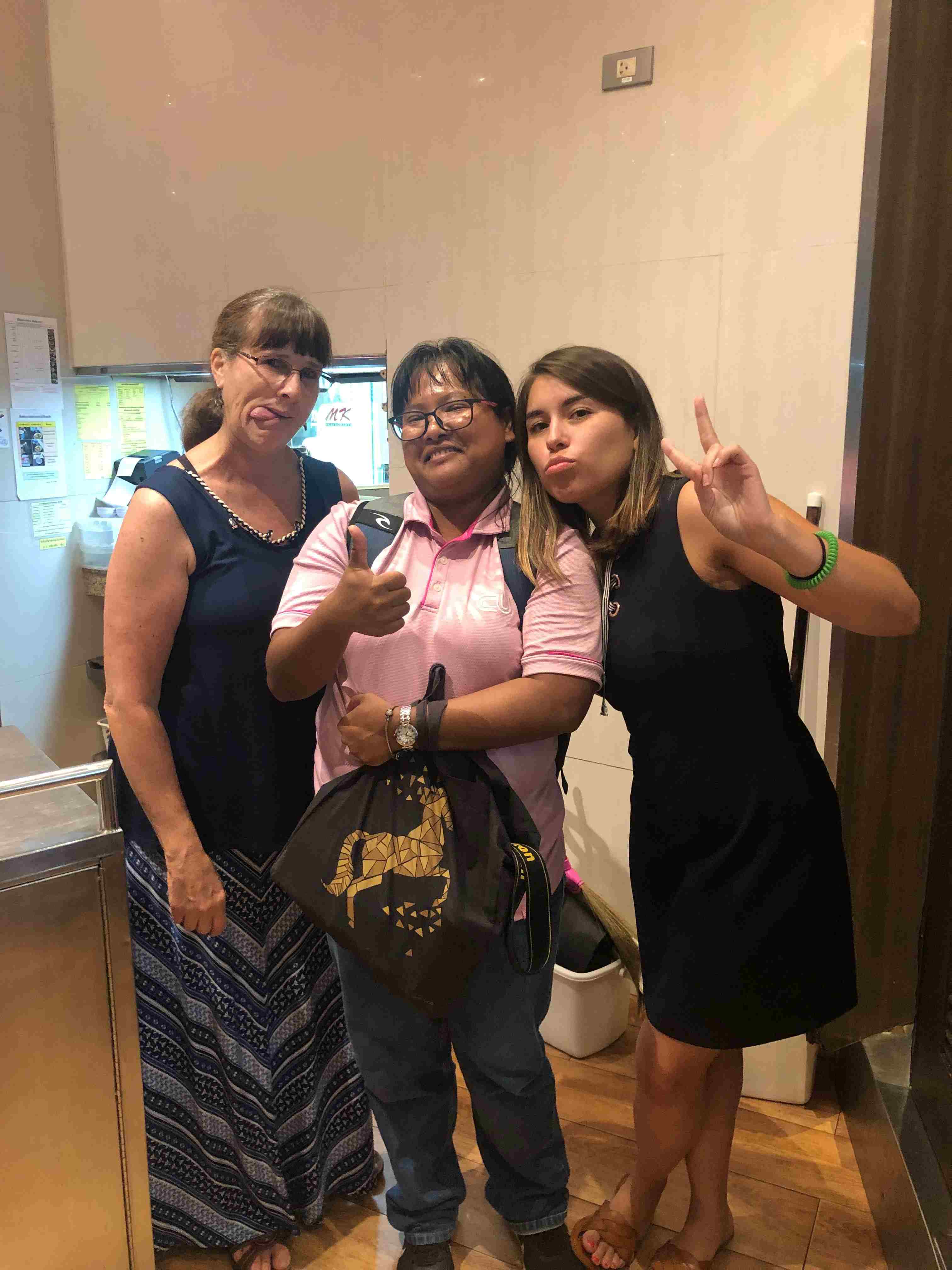
UNTIL NEXT TIME MY WONDERFUL READERS!
